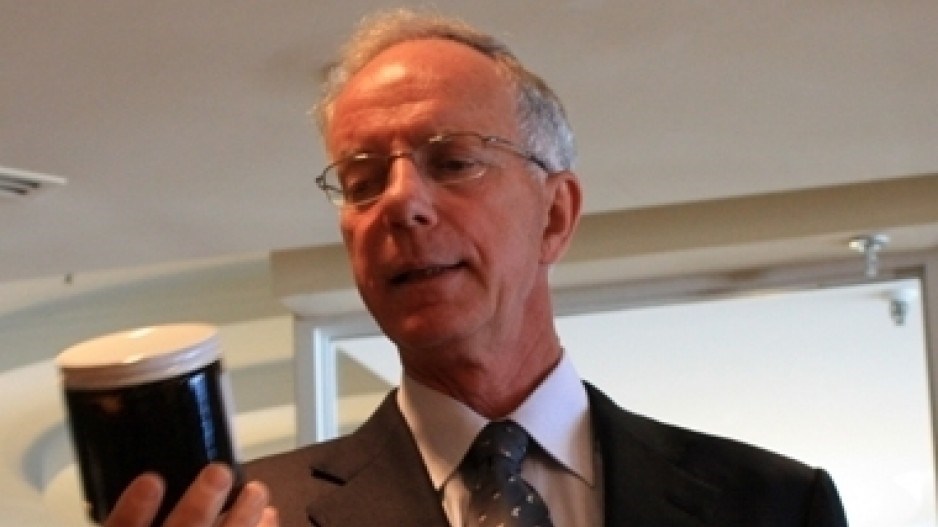The federal government’s conditional approval of Enbridge’s Northern Gateway pipeline neither helps nor hurts his plans to build a refinery on British Columbia’s north coast, Victoria businessman David Black said June 17. It certainly isn’t going to stop him from pushing ahead with the project, he said.
“It doesn’t change my plans,” Black said. “A year and a half ago, I decided we would have to be putting our own pipeline in anyway.”
Black’s company, Kitimat Clean, plans to build a refinery near Kitimat. The refinery is Black’s answer to concerns raised over Enbridge’s pipeline, which would carry bitumen or diluted bitumen from Alberta to load onto tankers on B.C.’s coast.
Black has argued refining the heavy oil into products such as gasoline and diesel before shipping would reduce the potential for an environmental disaster and be an economic boon for B.C.
Black estimates the overall price tag of Kitimat Clean at $32 billion, which would cover the cost of building the refinery, $6 billion for a bitumen pipeline from Alberta, $2 billion for a natural-gas pipeline to fuel the refinery and $1 billion for a fleet of tankers to transport refined fuels to buyers in Asia.
None of that changes with the decision on Enbridge.
“I think [Ottawa’s approval] was a foregone conclusion so I’m certainly not surprised,” he said. “I got into this to provide an alternative so we wouldn’t have to put [diluted bitumen] into tankers, so I’m not wild about that.”
What may surprise people is that Black counts himself in the camp that believes Enbridge may have trouble building the pipeline at all.
While the federal government’s approval is contingent on Enbridge satisfying 209 conditions set out by the federal review panel, the company also has to satisfy B.C.’s five conditions and deal with increasingly vocal First Nations and environmental groups.
“A lot of people are saying it won’t get built, and I think it’s going to be very hard to finish this off because of the polling done indicating B.C. is two-thirds against this — coastal First Nations are 100 per cent against this as are fishing communities, even [the municipality of] Kitimat, which stands to gain, is against it,” said Black. “That’s because everyone is scared to destroy the coast and the fishery —that’s the big knock against the project.”
Black believes pipelines can be built safely, and that people will come around on the idea, if there’s enough in it for B.C. and there’s no risk to the coast.
“That’s the big one — if there’s a spill, it will foul things up and then who knows. We don’t have the technology to bring [the coast back],” he said.
Black did propose working with Enbridge a couple of years ago, but was told some of the partner oil companies in the project did not want to refine in Canada.
That may be down to having parent firms outside of Canada that would rather refine the product at their own plants.




